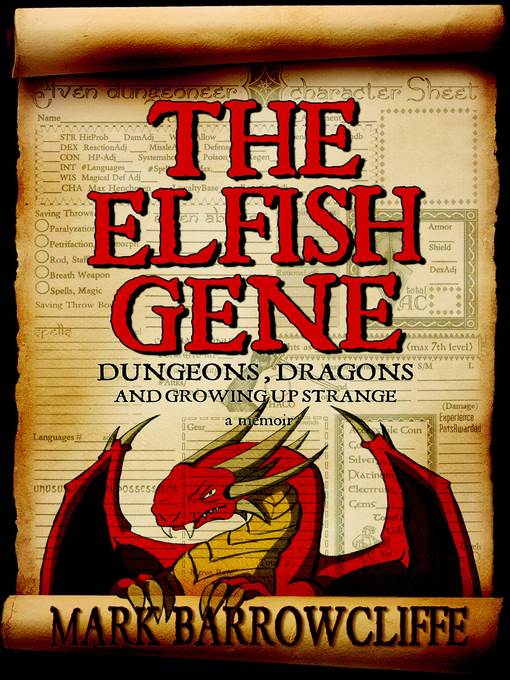
The Elfish Gene
Dungeons, Dragons and Growing Up Strange: A Memoir
کتاب های مرتبط
- اطلاعات
- نقد و بررسی
- دیدگاه کاربران
نقد و بررسی

Starred review from September 8, 2008
As a 12-year-old in England in 1976, Barrowcliffe (Lucky Dog
) made a fateful choice: he started playing Dungeons and Dragons. Role-playing games were just beginning their rise, and Barrowcliffe, along with 20 million other socially maladapted boys, spent his adolescence in dining rooms and basements as a druid, warrior or magician, throwing oddly shaped dice and slaying monsters. While D&D allowed Barrowcliffe to escape his mundane, much-bullied existence in an all-boys school, it also threw him into an equally cruel nerdiverse of Nazi wannabes, boys with nicknames like Rat and Chigger, and his polymath, Falstaffian best friend who once ate a still-frozen chicken pie on a bet. Barrowcliffe, whose own schoolboy nickname was “Spaz,” wonderfully captures the insensitivity, insecurity and selfishness of the adolescent male. His eye for the oddities of 1970s British life is equally astute. At times, Barrowcliffe's relentlessly self-deprecating humor descends into a tedium of self-loathing. The book also loses some of its focus toward the end when D&D gives way to heavy metal clubs and tolerant girlfriends. However, these are minor imperfections when measured against the quality of the author's vision. Barrowcliffe renders all the comedy and sorrow of early manhood, when boys flee the wretchedness of their real status for a taste of power in imaginary domains.

February 1, 2009
Adult/High School-In this autobiography, Barrowcliffe tells the story of a self-proclaimed nerd living in 1970s Coventry, England; Dungeons & Dragons; and the boys who played it. He provides a humorous look into the world of fantasy role-playing at a time when computer RPGs didn't exist and people were forced to use their imaginations. He recounts his foray into the game, his struggle to belong, and what ultimately led to his "growing up." The writing is often self-deprecating and combines views on the city with detailed descriptions of the gaming sessions. Despite-or, in part, because ofthe long descriptions of gaming, this book will appeal to those interested in the RPG phenomenon. The author's character development leaves readers with a strong sense of who these boys were and why they played the game. This book is ideal for anyone who is into fantasy role-playing or interested in the cultural and social implications of such games."Kelliann Bogan, Colby-Sawyer College, New London, NH"
Copyright 2009 School Library Journal, LLC Used with permission.

November 15, 2008
Readers will find this very funny memoir of Dungeons and Dragons tobe just like the games themselves: unforgivably dorky but irresistibly fun. As a teenager in 1970s Britain, Barrowcliffe claims he had a chance to be normal (chatting up girls and drinking beer) but instead fell under the spell of, well, casting spells. Years of absolute dedication to role-playing games would form a defining developmental black hole for him: For many boys who grew up in the seventies and eighties, our peer group and education constituted a sort of wanker factory. This is the story of the operation of its most efficient department. But, as he cheerfully insists, he would have had it no other way. Barrowcliffes self-deprecatory tone and ironic detachment often melt away to revel in some serious geekspeak, and hes at his best recounting all-night sessions and the thrill of dicing up new characters. He makes a few compulsory nods to neophytes, but make no mistake, this book is for gamers reliving their exploits in the dungeons and basements of adolescent fantasy-fulfillment.(Reprinted with permission of Booklist, copyright 2008, American Library Association.)

























دیدگاه کاربران